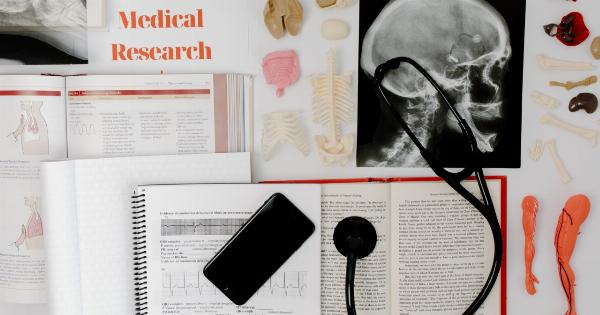Heart disease, also known as cardiovascular disease, is a leading cause of death worldwide. Despite significant advances in medical science, the search for an effective solution to combat this deadly condition continues.
One such promising avenue of research involves the exploration of spermidine, a natural compound with potential heart-protective properties. This article delves into the growing body of evidence supporting spermidine as a potential solution for heart disease.
The Role of Spermidine in Cellular Health
Spermidine is a polyamine compound found abundantly in cells, including the human body. It plays a crucial role in various cellular processes, including DNA stabilization, gene expression, and protein synthesis.
Additionally, spermidine is involved in the regulation of autophagy, a cellular process responsible for cleaning up damaged or misfolded proteins and organelles.
Spermidine and Aging
Aging is a significant risk factor for cardiovascular disease. As we age, our bodies become more susceptible to oxidative stress, inflammation, and cellular damage.
Research has shown that spermidine levels decline with age, leading to a reduction in autophagy and an accumulation of damaged cellular components. This decline in autophagy has been linked to cardiovascular disease and other age-related conditions.
Promoting Heart Health with Spermidine
Multiple studies have suggested that spermidine supplementation may confer cardiovascular benefits.
One 2016 study published in the journal Nature Medicine demonstrated that spermidine supplementation extended the lifespan of mice and reduced age-related cardiovascular pathologies. The researchers observed improved cardiac function and reduced cardiac hypertrophy, fibrosis, and inflammation in spermidine-treated mice compared to the control group.
Another study published in the journal Molecular Cell in 2019 showed that spermidine supplementation led to better cardiovascular outcomes in human participants.
The researchers found that individuals who consumed spermidine-rich diets had lower blood pressure and a reduced risk of heart disease-related death compared to those with lower spermidine intake. The study also revealed that spermidine intake correlated with decreased arterial stiffness, a significant risk factor for cardiovascular disease.
Mechanisms of Action
Researchers believe that spermidine exerts its cardioprotective effects through multiple mechanisms.
Firstly, spermidine promotes autophagy, allowing cells to clear out damaged proteins and organelles that contribute to the development of cardiovascular disease. Autophagy helps maintain cellular homeostasis and prevents the accumulation of toxic substances that can impair heart function.
Spermidine also possesses antioxidant properties, helping to reduce oxidative stress and inflammation within the cardiovascular system.
By inhibiting oxidative damage and inflammation, spermidine may help protect blood vessels from plaque formation, improve endothelial function, and maintain healthy blood pressure levels.
Furthermore, spermidine has been shown to regulate lipid metabolism and improve cholesterol homeostasis. High levels of LDL cholesterol, often referred to as “bad” cholesterol, are a known risk factor for heart disease.
Spermidine supplementation has been shown to decrease LDL cholesterol levels and promote the clearance of cholesterol from blood vessels, reducing the risk of cardiovascular events.
The Future of Spermidine Research
The promising findings from studies on spermidine’s potential role in promoting heart health have generated significant interest among researchers and healthcare professionals.
However, further research is necessary to fully understand the effects of spermidine on different populations and ascertain the optimal dosage and duration of supplementation.
Ongoing clinical trials are investigating the long-term effects of spermidine supplementation on cardiovascular outcomes.
These trials aim to provide valuable insights into the potential benefits and safety of spermidine as a therapeutic intervention for heart disease prevention and treatment.
Incorporating Spermidine into Lifestyle Choices
While spermidine supplementation shows promise, it is essential to remember that it should not be seen as a standalone solution for heart disease. Instead, it should be considered as part of a comprehensive approach to cardiovascular health.
Some natural food sources rich in spermidine include soybeans, mushrooms, legumes, and certain types of cheese. By including these foods in your diet, you can naturally boost your spermidine intake and potentially support heart health.
Furthermore, other lifestyle choices such as regular exercise, a balanced diet, stress management, and not smoking play crucial roles in reducing the risk of heart disease.
Incorporating these habits into your daily routine, alongside spermidine-rich foods, may yield a more comprehensive approach to cardiovascular health.
The Promising Future of Spermidine
As heart disease continues to pose a significant burden on global health, the search for effective preventive and therapeutic strategies remains of utmost importance.
Spermidine, with its role in promoting cellular health, regulating inflammation and cholesterol levels, and improving cardiovascular outcomes, shows immense promise as a potential solution for heart disease.
While more research is needed to fully understand the mechanisms of action and establish optimal dosages, spermidine supplementation, combined with healthy lifestyle choices, may prove to be a valuable component of preventive and therapeutic strategies for heart disease.
























